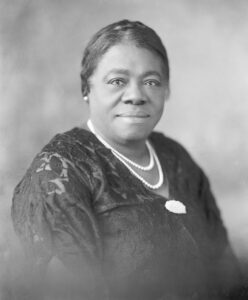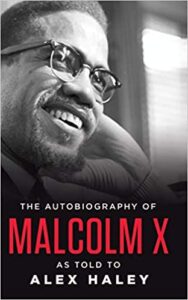Author: Kelsey Walock, History Major
Federally recognized in February since the 1970s, Black History Month celebrates and notes African Americans’ contributions to history and society, often recognizing aspects of history that may have historically been overshadowed. However, the concept goes as far back as 1926. Carter G. Woodson, a Black historian, proposed “Negro History Week” after noticing the lack of education in schools on the essential topic of African American history. Recognized in February, as recognition of February 1st as National Freedom Day, or the date of the 13th amendment’s ratification, it has continued to show the importance of such a celebration and notice in society and culture. This year, as chosen by the Association for the Study of African American Life and History, the theme is “The Black Family: Representation, Identity, and Diversity,” and there is evident importance to this subject in current day society as well as through history and the past.
A critical figure in African American history and society is Mary McLeod Bethune,
a civil rights activist, educator, and stateswoman, among many other things. Born in 1875 to formerly enslaved parents, she grew up in South Carolina. Racism in society had stunted education for many African Americans, and Mary noticed literacy as the only difference between Black and white people. This encouraged her to pursue her education, going to various schools with scholarships, and eventually deciding on education as a career path. Moving to Daytona, she founded a school for girls with a rigorous curriculum. As her school grew, she merged with a local boy’s school, establishing what would become a four-year college. However, she engaged in more than just education, serving as the president of the National Association of Colored Women, the president of the Southeastern Association of Colored Women’s Clubs, and as the founder of the National Council of Negro Women. Becoming close with Eleanor and Franklin Roosevelt, she helped form the Black Cabinet, an advisory board to the Roosevelt administration on race-related issues, and working within the National Youth Administration, a program introduced by the Roosevelt administration. Passing away in 1918, her impact still holds strong today in history and continues to be recognized.
Gustavus offers ample opportunity to engage in Black history for majors and non-majors alike. Regularly, we offer courses that include Black history or are solely focused on black history at all levels of study. Makayla Greer, a psychology major, has taken both Black History Matters and US History after the Civil War and noted an influential quote that had stood out to her as a take away from these courses. John Lewis, an influential civil rights activist, and politician, quotes that “Ours is not the struggle of one day, one week, or one year. Ours is not the struggle of one judicial appointment or presidential term. Ours is the struggle of a lifetime, or maybe even many lifetimes, and each one of us in every generation must do our part,” which helps show the importance of taking these courses and learning in the current day for all students. Additionally, concentration and minors in related fields like African Studies help round out a history education at Gustavus and expand one’s knowledge on the subject.
There are many ways to expand on Black history knowledge even if one is unable to take a course. A few professors from the history department gave some book recommendations to kickstart students’ learning. Dr. Misti Harper, a professor with experience teaching the subject, provided a list of recommendations, noted not as an exhaustive list but rather some essentials. Listed as following she recommends The Mis-Education of the Negro by Carter G. Woodson, The Souls of Black Folks by W. E. B. DuBois, The Autobiography of Malcolm X by Malcolm X,
Stamped from the Beginning by Ibram X. Kendi, Sister Outsider by Audre Lorde, and But Some of Us Are Brave by Akasha (Gloria T.) Hull et al. Dr. Gregory Kaster, another professor with experience teaching the subject, recommends a Pulitzer-prize-winning biography his recent American Lives course read on Frederick Douglas, titled Frederick Douglass: Prophet of Freedom by David Blight. These books can be found through the Gustavus library or through Interlibrary Loans, with many offering eBook versions for those who may not be on campus.
Past campus, there are many opportunities locally and throughout Minnesota to engage with Black History Month. Organizations such as the NAACP have chapters near campus in Mankato, as well as historical organizations such as the Minnesota Historical Society or the Minnesota African American Heritage Museum and Gallery, provide more ample opportunities to learn more about the importance of Black history.

